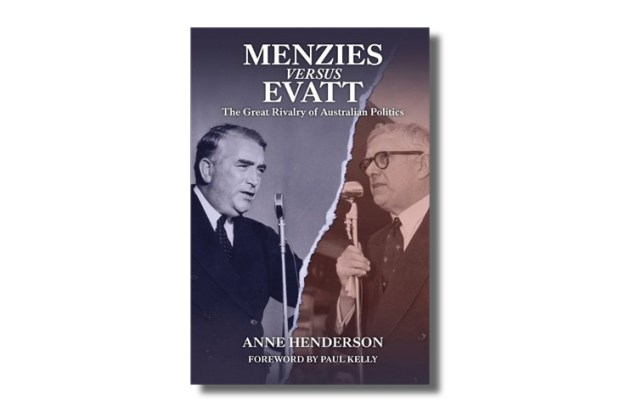This book expresses what is being more and more widely felt in English-speaking and other western countries: government is becoming dominated by a professional political class with little experience of the real world and increasingly divorced from the wishes, problems and values of the electorate.
The general theme here is the drift of power into the hands of the political class and the unaccountable ‘power-brokers’ — though more could be said about who these ‘power-brokers’ really are. More might have been made, for example, of the West Australian experience and the lessons of WA Inc., which bear out many of the authors’ points.
The authors see political decision-making as passing into the hands of elites and power-brokers within the parties, as well as interpretive judges who feel free to set the plain intentions of constitutions aside. The governance of Australia, so the book’s argument runs, does not belong to the people any more. Australia remains one of the better-governed countries in the world, but things are certainly not perfect and there are some ominous indications that in all the English-speaking democracies, for so long an example to the world, they may get worse. When Rudd, Gillard and Turnbull apparently believe that, given sufficient government power, they can change the climate, one wonders where it will stop.
The overall picture is the decline in Australian governance, which the authors attribute to the rule of factional power-brokers within the parties in alliance with various ‘elites’, gradually shutting out the ordinary citizen. It is an unpleasant parallel with the increasingly Third World appearance of the present US administration.
This deterioration is accompanied by a politically correct meddling in individual lives and property reminiscent of the worst of that US administration, the big-government, quasi-corporatist policies which have ruined cities like Detroit, and a vast increase in propaganda apparatus. Further, under the Gillard government at least, there were ominous suggestions that the government was becoming acutely aware of the attractions of press control. The Finkelstein enquiry concluded that a powerful News Media Council should set journalistic standards. Apart from the obviously totalitarian implications, the constitution gives the government no power to do this.
Looking back to Australia’s history, the authors say the deterioration is evident from the earliest days when the civil rights of all, including convicts and Aborigines, were respected. Following the Myall Creek massacre, white men who killed Aborigines were tried and hanged. In Australia’s first civil law case two married convicts sued the captain of a ship — one of the powerful people in the colony — for losing their possessions. The convicts won, an outcome unimaginable anywhere else in the world at that time. It was, like the first religious sermon preached in Australia, part of which is quoted here, an illustration of how the first officials took the principles of the Enlightenment and the rule of law seriously.
To restore the best principles of Australia, the authors argue, it is futile to tinker with the fringes of the problem, but necessary rather to make politicians accountable to the people, not only at elections but all the time, and, in effect, to give the people veto powers over new legislation. The High Court should not try to reinterpret the Constitution to suit individual judges’ ideologies, and taxation powers should be returned to the states — which in turn should have the courage to assume the additional responsibilities involved.
There is a series of propositions for structural reform that would return power to the people. Frequent reference is made to the positive examples of Switzerland and some American states. Features the authors see as desirable include citizen-initiated referenda, which we heard a bit about a few years ago but which seem to have been hushed up, or at least to have had no champion, since. Professor Emeritus Geoffrey de Q. Walker is quoted to the effect that High Court judges should be subject to recall by the people.
In this book (and in New Zealand author Mary Brooke’s One Hundred Days) we may see the beginning of an antipodean Tea party, frustrated by the way the system has developed and centred on accountability. Brooke, for example, proposes that citizens have 100 days to recall new legislation.
Unlike some books decrying the present discontents which have come and gone, these arguments are worth taking seriously. An author of the calibre of David Flint, one of Australia’s most distinguished legal philosophers and a major political historian, cannot be dismissed as a red-necked populist.
One of the authors’ constant themes is that parliamentary pre-selections must be made more democratic. The principal mechanism for this is to give voters veto power over legislation.
‘In the meantime, the government has significantly increased the number of spin doctors working on the government’s message. Their 1,600 spin doctors cost taxpayers about $150 million dollars a year,’ it is argued. ‘In addition, there are also more spin doctors in the parallel public service that governments now surround themselves with, the so-called ministerial advisors.’
Defence policy — which should be the government’s first duty — is in a limbo, and with defence being drastically cut and then cut again, ‘the government has clearly failed in its crucial core duty of defending the Australian nation.’ Vote-buying wins over sound policy-making again.
The wishes of the people are ignored on a range of matters. Former Senator Nick Minchin is quoted to the effect that compulsory voting is ‘a conspiracy among the political parties to use the force of law to save themselves the trouble of having to persuade people to vote’. He describes the compulsory voting provisions as having been ‘insidiously inserted there by self-serving politicians’ and calls for their removal.
In another instance of political-class abuse, the authors cite the fact that billions of tax dollars have been spent by the Gillard-Rudd government to buy Australia a temporary seat on the UN Security Council, simply a pulpit for prime ministerial vanity, and actually run by Russia and China in any case. This can hardly be the last word on these matters.
Got something to add? Join the discussion and comment below.
Get 10 issues for just $10
Subscribe to The Spectator Australia today for the next 10 magazine issues, plus full online access, for just $10.
Hal G.P. Colebatch is a regular book reviewer for The Spectator Australia.
You might disagree with half of it, but you’ll enjoy reading all of it. Try your first month for free, then just $2 a week for the remainder of your first year.













Comments
Don't miss out
Join the conversation with other Spectator Australia readers. Subscribe to leave a comment.
SUBSCRIBEAlready a subscriber? Log in